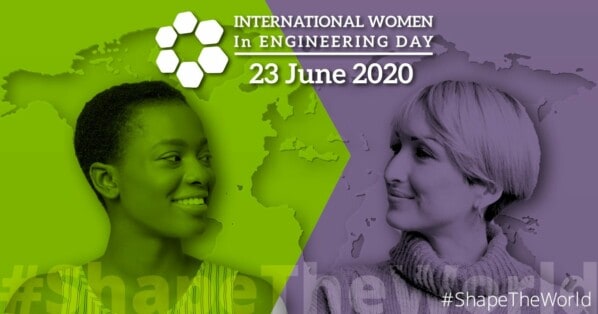My major was biomedical engineering with a concentration in medical devices. This led me to track down a career in the medical device field. Frankly, I became a manufacturing engineer because I wanted to enter the medical device field and there was a position open for a manufacturing engineer. I did not know what manufacturing engineering really entailed before stepping foot on the Stryker manufacturing floor, but I have absolutely no regrets about starting my career as a manufacturing engineer. Manufacturing is a fast-paced environment by nature which fosters quick learners and lots of networking. I have since transitioned to a role as a process engineer, which is basically a more specialized manufacturing engineer. Instead of working on all machines/processes/products all over the plant, I specialize in manufacturing processes for knee implants.
I decided to pursue engineering my freshman year of high school after speaking with an orthopedic surgeon at the Hospital for Special Surgeries in New York City. I explained to this surgeon that I was interested in the medical field but was not sure where in the medical field I wanted to go. He went on to explain that he chose biomedical engineering as an undergrad degree because you can do anything in the medical field with that degree. Want to be a doctor? Biomed engineering gives you a leg up over your competitors because you can think like an engineer. Want to be a CPO? Biomed engineering gives you a leg up because you have a deeper understanding of the med devices you work with. Want to pursue a career in research? You can concentrate in tissue engineering or pharmaceuticals. After hearing the surgeon’s point of view I looked into Biomedical Engineering and since I loved math and science growing up and have always had a fascination with how things are made I decided to give Biomedical Engineering a try.
I graduated from Binghamton University in 2020 with a bachelor’s degree in Biomedical Engineering. While at Binghamton I was a part of the Society of Women Engineers for all 4 years. I loved being a part of SWE because it provides a network of women supporting women across the entire engineering and STEM field. Many of my projects junior and senior year were medical device specific and helped me learn that I wanted a career that would allow me to be hands-on. I learn and work the best when I can physically walk the process or hold the product.
I did an internship at a prosthetic and orthotic office before my senior year of college. About junior year of high school I became interested in prosthetics and that is what pushed me to pursue a concentration in medical devices. This internship was at a very small prosthetic and orthotic office where I was able to gain a better understanding of what a CPO (certified prosthetist and orthotist) does on a daily basis. I had the opportunity to be a hands-on intern, helping the CPO cast patients’ limbs, modify sockets, adjust their prosthetic components, and modify orthotics. Through this internship I learned I was way more interested in the prosthetic limb and the technology involved to create them, then working with patients as a CPO. I enjoyed my internship and felt it was extremely helpful in clarifying my career path. My internship taught me numerous soft skills but most importantly communication. I was the first and only intern in a very small office. I basically created my own internship path, so I needed to vocalize exactly what I wanted to learn in order to get anything out of the internship experience.
Another aspect of school that contributed to my current job were group projects, they are one of those things that you don’t realize are insanely valuable until you graduate and enter the “real world”. The actual project does not teach you as much as the interactions with your teammates. When you work in manufacturing you are constantly exposing yourself to new people, new personalities and new talents. The arrangement and harmony skills you unintentionally learned while working on group projects will carry you far in manufacturing. I am constantly analyzing how best to use the stakeholders to maximize the efficiency of a project while also maintaining harmony within the project team.
Stryker, my current company, is a medical device company that works in many different businesses such as medical and surgical equipment, orthopedics, neurovascular, spine, sports medicine, and craniomaxillofacial. I work as a process engineer and work on launching new processes for making knee implants. I work in the orthopedics division of Stryker. In a typical work day I will interact with operators, inspectors, quality engineers, managers, supply planning, subject matter experts, and project managers. My favorite thing about working with Stryker is hearing all of the patient impact stories. It is always so cool to hear about giving someone a second chance at a normal life post hip/knee replacement.
I was a manufacturing engineer prior to switching to process engineering. Manufacturing is basically a broader version of what I do know. My boss always jokes that the best process engineers were manufacturing engineers first because you get to see all of the “fires” that need to be put out in existing processes before you hop into developing new/improved ones. As a manufacturing engineer you never really know what your day will look like. The excitement of coming in and tackling each new day as it comes at me is my favorite part. I work best in a fast paced environment that challenges me to constantly learn and think on my toes.
Engineering in general is a great degree because it sets you up for success and flexibility in all career paths. Manufacturing engineering opens the door to a world of possibilities – everything you interact with on a daily basis somehow ties to manufacturing from the chips you eat to the medical devices in your grandpa’s knee. Manufacturing engineering is arguably the best job to start your career in. You are forced to learn something new everyday and interact with many different stakeholders. This will help you build your marketability as an engineer and your network within the company. If you think you would like working in a hands-on environment full of teamwork and everyday is different I definitely suggest looking into manufacturing engineering as a degree or even just to pursue after engineering school!
Authors
-

SWE Blog provides up-to-date information and news about the Society and how our members are making a difference every day. You’ll find stories about SWE members, engineering, technology, and other STEM-related topics.
-
Written by Emily Tacopina: Emily is a Consultant Engineer at FM Global. Emily graduated from the University of Rhode Island with a BS degree in Mechanical Engineering.






